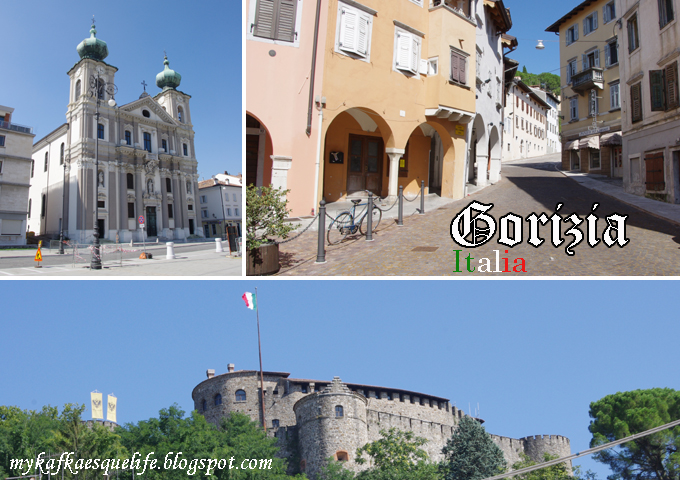

Gorizia (Slovenian Gorica) is a lovely Italian small town, very picturesque, stretched along the border between Italy and Slovenia. Of course the town wasn't built so close to the border, the border was drawn here after WWII. The name "Gorizia" originates from the Slavic or old Slovenian "gorica", which means "small hill" (the meaning is same in modern Slovenian, too) and Slovenians still call this town Gorica. The name was probably given, because old Slovenians originally settled on the small hill above the modern city, where there's a beautiful castle today. The town name was first documented in the year 1001 as "Villa quae Sclavorum lingua vocatur Goriza" ("The village that in Slavic language is called Goriza", source).
Gorizia, first being a small village inhabited by old Slovenians, fell under the Austrian rule in 1500 and soon became a lovely small town and a melting pot of many cultures such as the Slovenian, Italian, Friulian and German. It became bigger, attracted more people and gained importance in this part of Europe. And then came the tumultuous 20th century, world wars, killings, emigration, the rise of fascism, nazism and communism and things started to change. I'm sIn 1910, 51% of Gorizia's population were Italian, 37% Slovenian and 11% German. Today most Gorizians are Italians, a very small percentage are Slovenians, while the German minority is completely gone. Today Gorizia is purely Italian, but when you walk around this lovely small town, you feel like you're in Italy, Slovenia and Austria at the same time. All these ethnic groups have left a big mark on modern Gorizia and so it's no wonder, that this town is so delightfully adorable.
Let me show you our trip to Gorizia/Gorica:
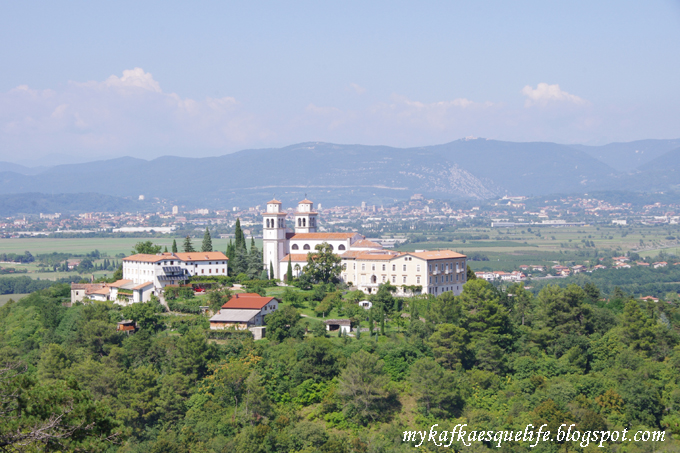
Our journey began in Trieste (Ita) and we passed by the scenic Miren castle (Slo). That's where we saw Gorizia for the first time (it's that bigger settlement in the behind).

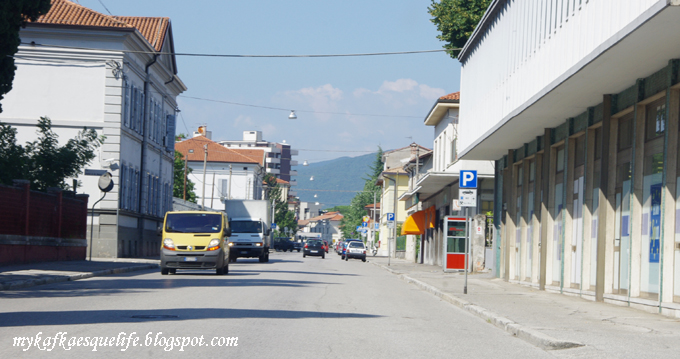

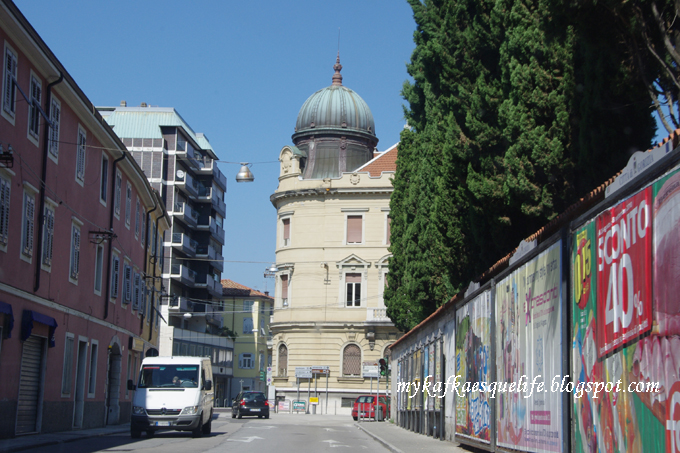
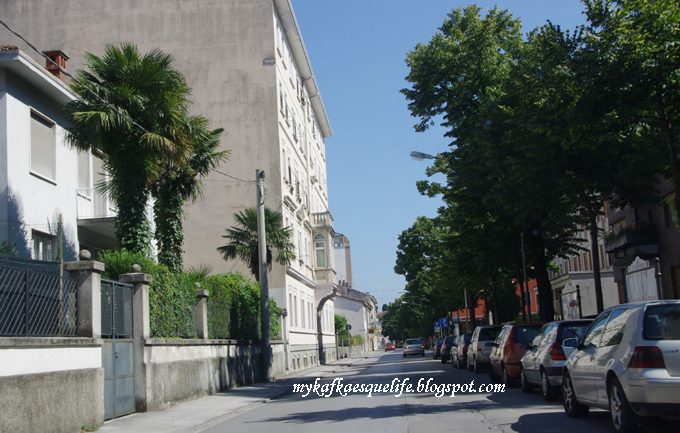
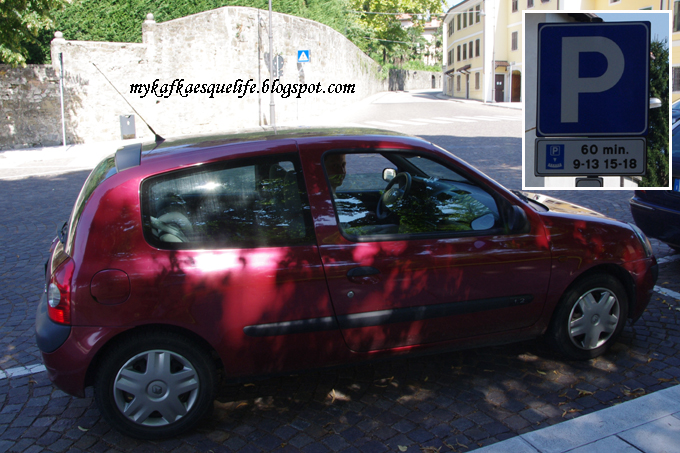
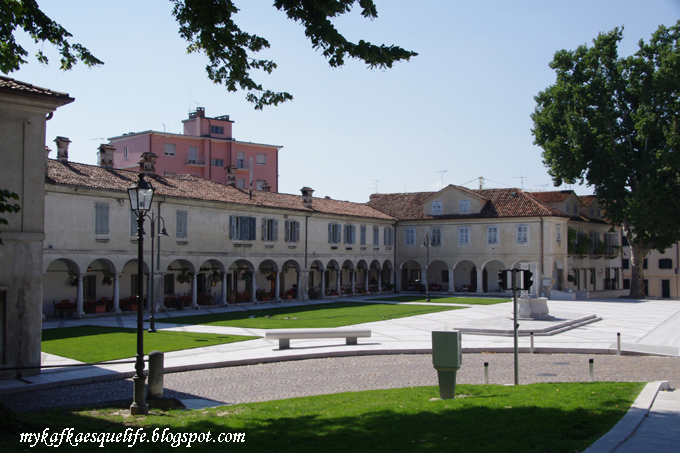
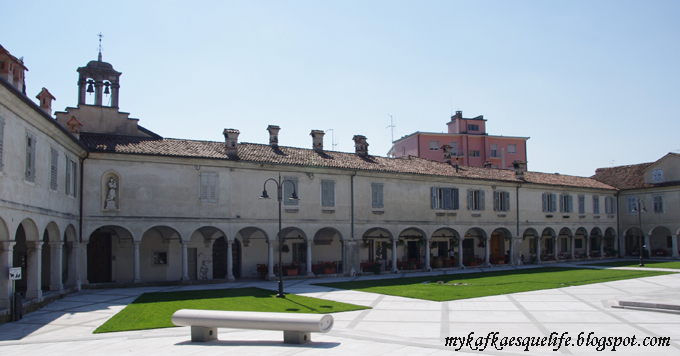
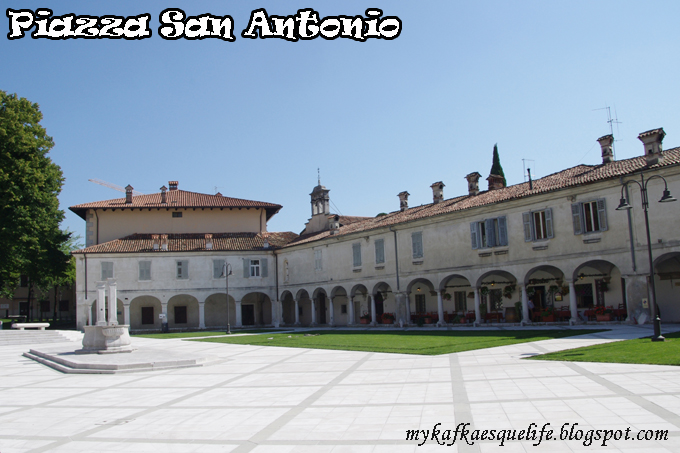
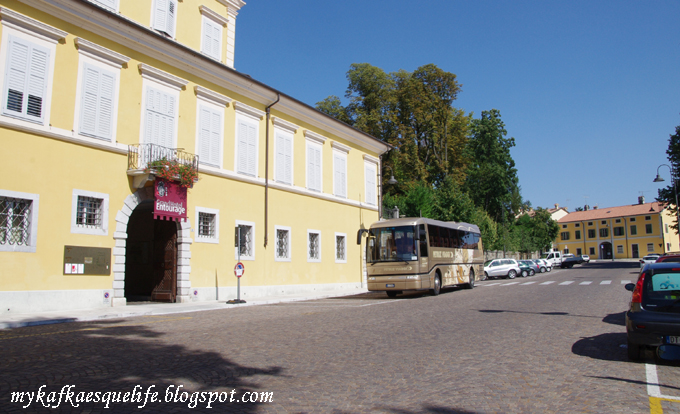
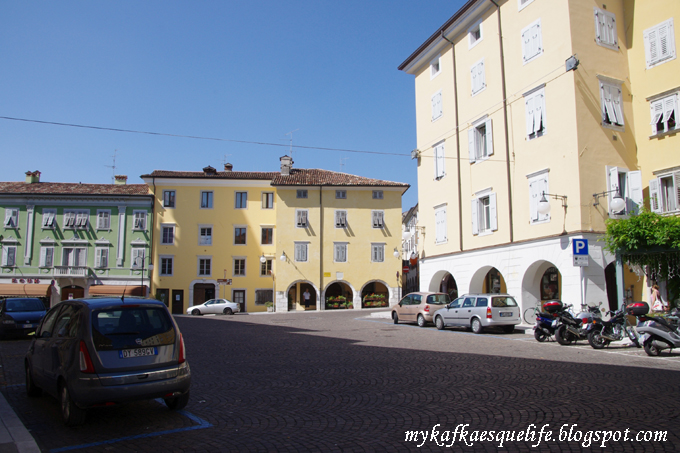
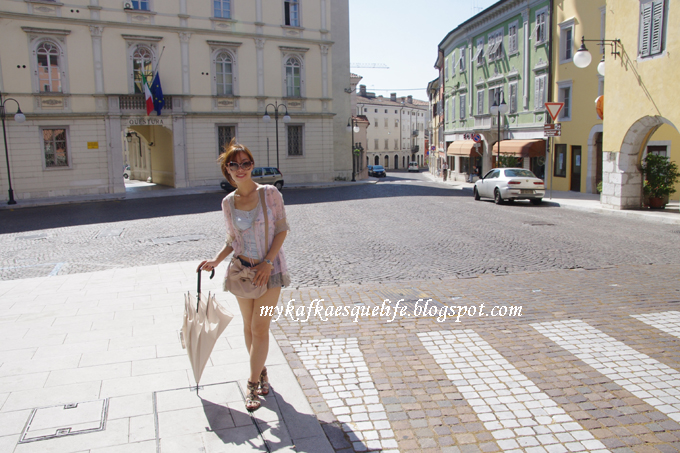
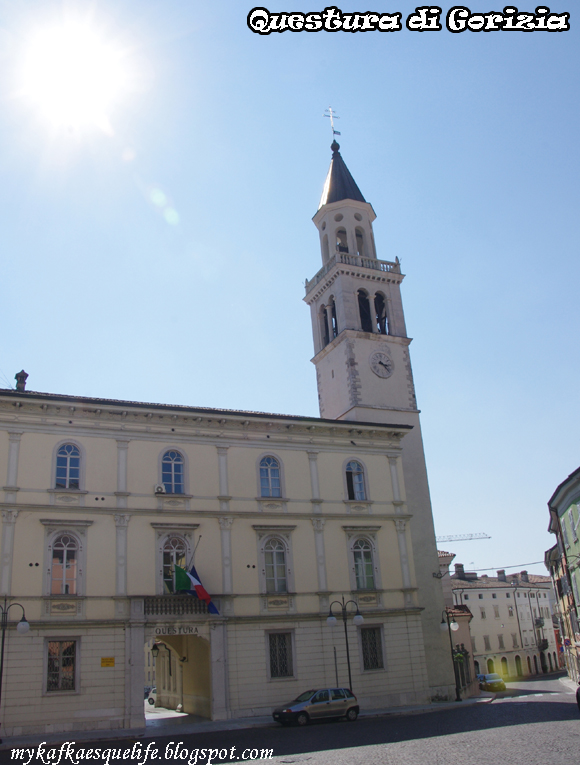
I was really impressed with Gorizia's old town. It's really so beautiful and also really well renovated. The only other thing, that surprised me, was that there was almost no people in the center. It was after 15pm, very hot and most of Gorizia was empty. Were people having a siesta? It was a Saturday, maybe Italians visit mama on that day? I don't know. I wonder, why so empty, though. Of course we had a good chance to make some nice pics, it was sunny and it felt like a museum. It's a pity, that we didn't have so much time to go to the castle and to see more of the old center. We had to see so much more that day and arrive in Ljubljana in the evening, so we were under a slight time constraint. But it was enough, though.
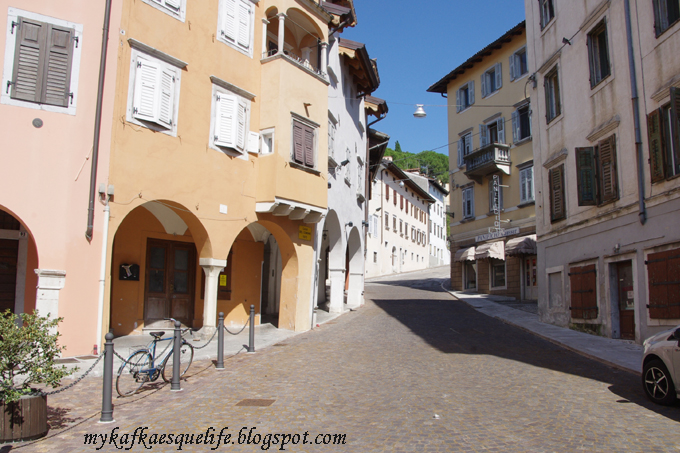



And then we came to Gorizia's main square: Piazza della Vittoria (Victory square). The Slovenians call this town square Travnik, which means "meadow".
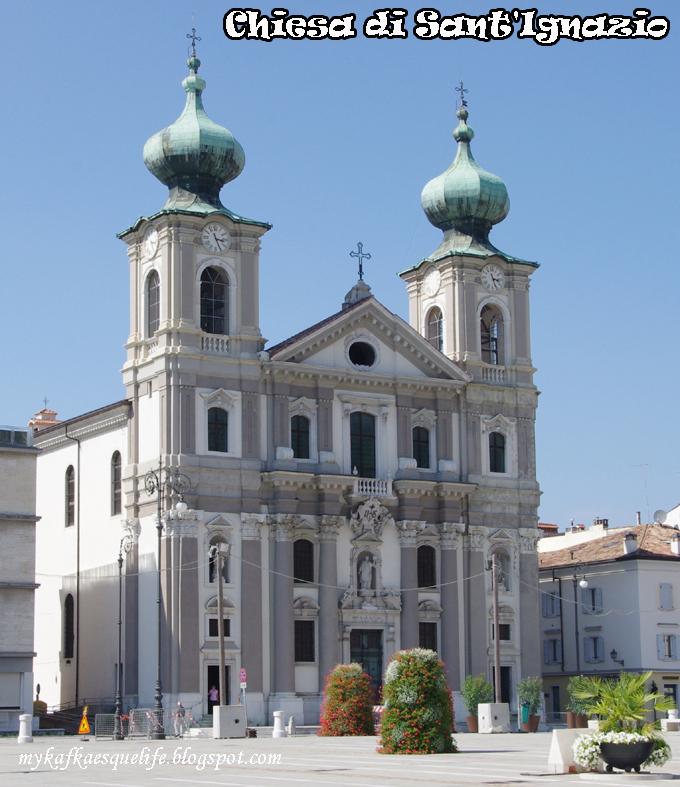
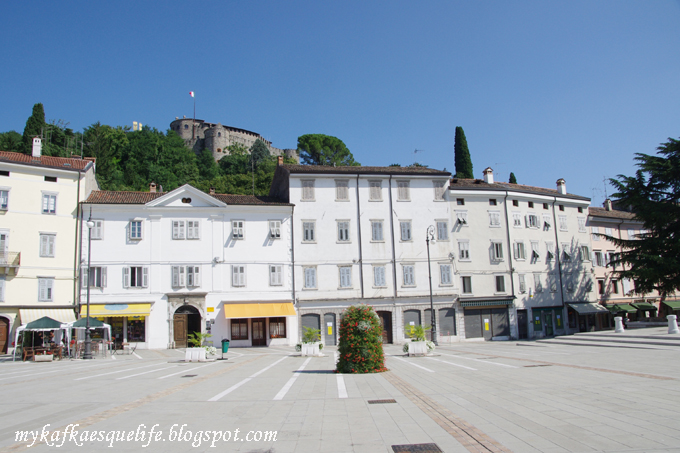
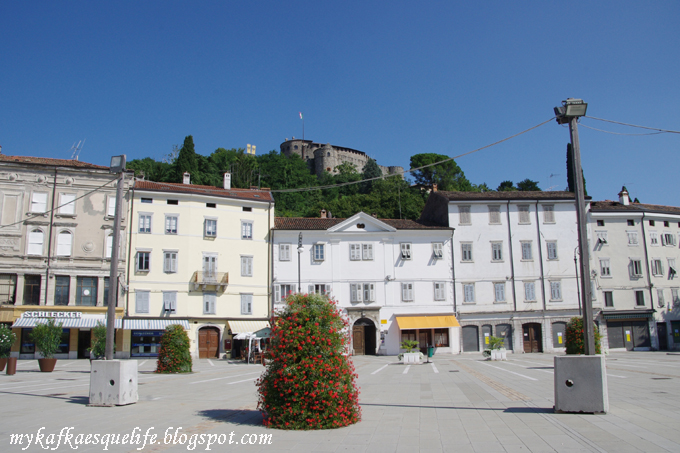
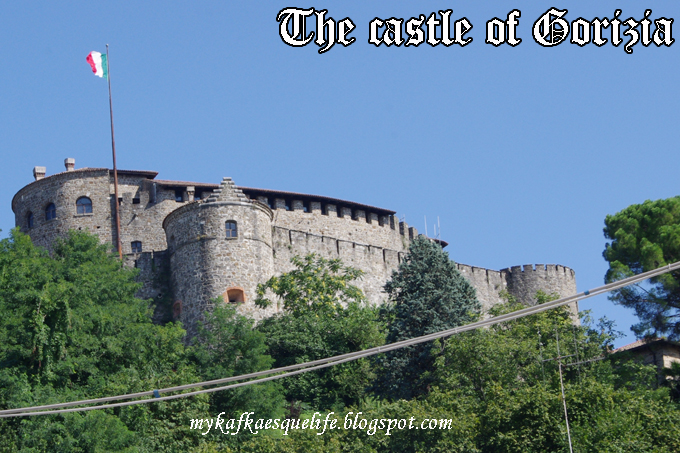
The Castle of Gorizia (Castello di Gorizia, Goriški grad) was rebuilt in the 1930s, because it was destroyed during WWI. It was restored to the version from the 16th century, more here.
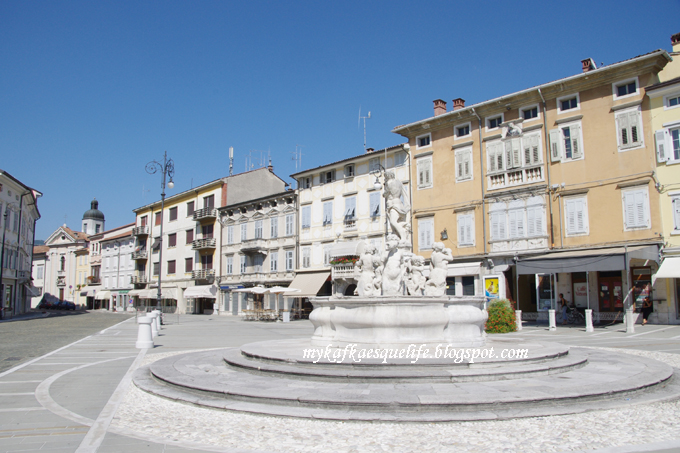
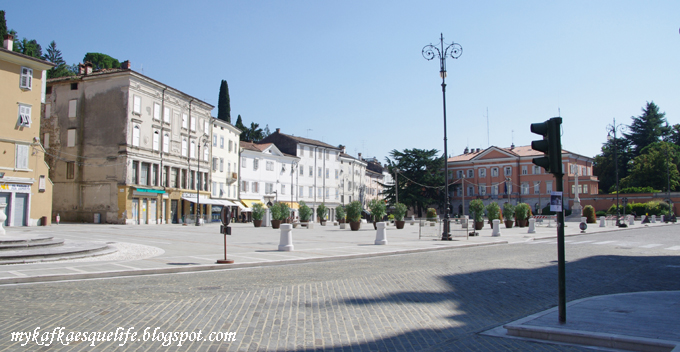
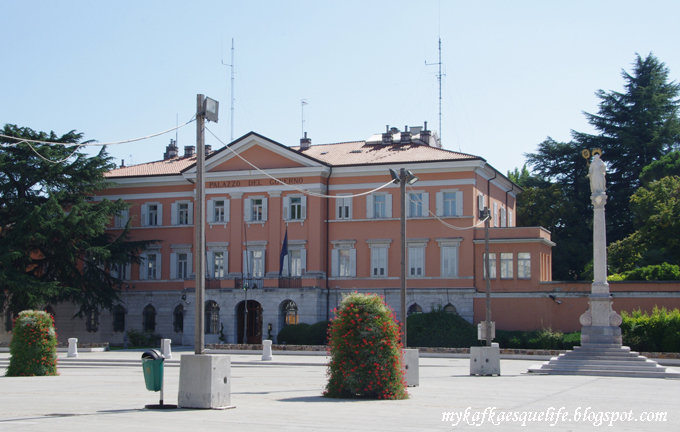
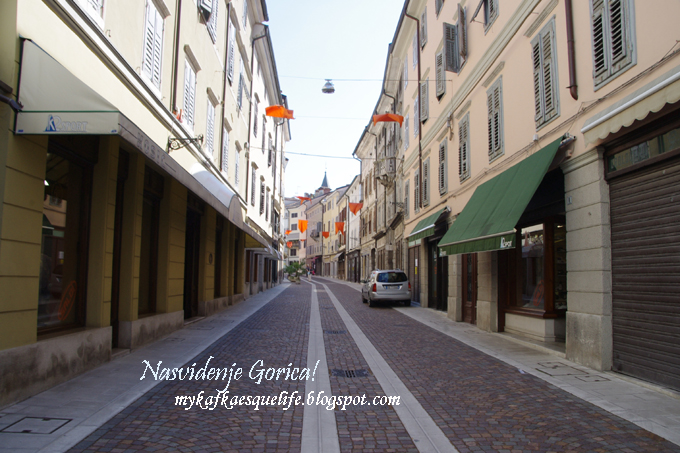
We probably spent around 1h or less in Gorizia/Gorica and really enjoyed it, although the heat was nearly unbearable. That day was one of the hottest of the whole Slovenia trip 2010. But I'm glad we visited it, it was probably the most beautiful town we saw that day in Italy. I really recommend you to see it, if you happen to be in the area.
We left Gorizia pretty fast, just hopped on the other side of the border to the Slovenian town Nova Gorica (literally "New Gorizia"). That town was built after WWII (1947) to accommodate Slovenians, who escaped from Gorizia and Italy. More about that in my next post.

My rating of Gorizia/Gorica:
Great place for photos ✰✰✰✰✰
Great place for photos ✰✰✰✰✰
Well preserved and clean ✰✰✰✰✰
Toilets, parking, souvenirs ✰✰✰✰✰
[All photos by MKL, 2010, except the map]



No comments:
Post a Comment